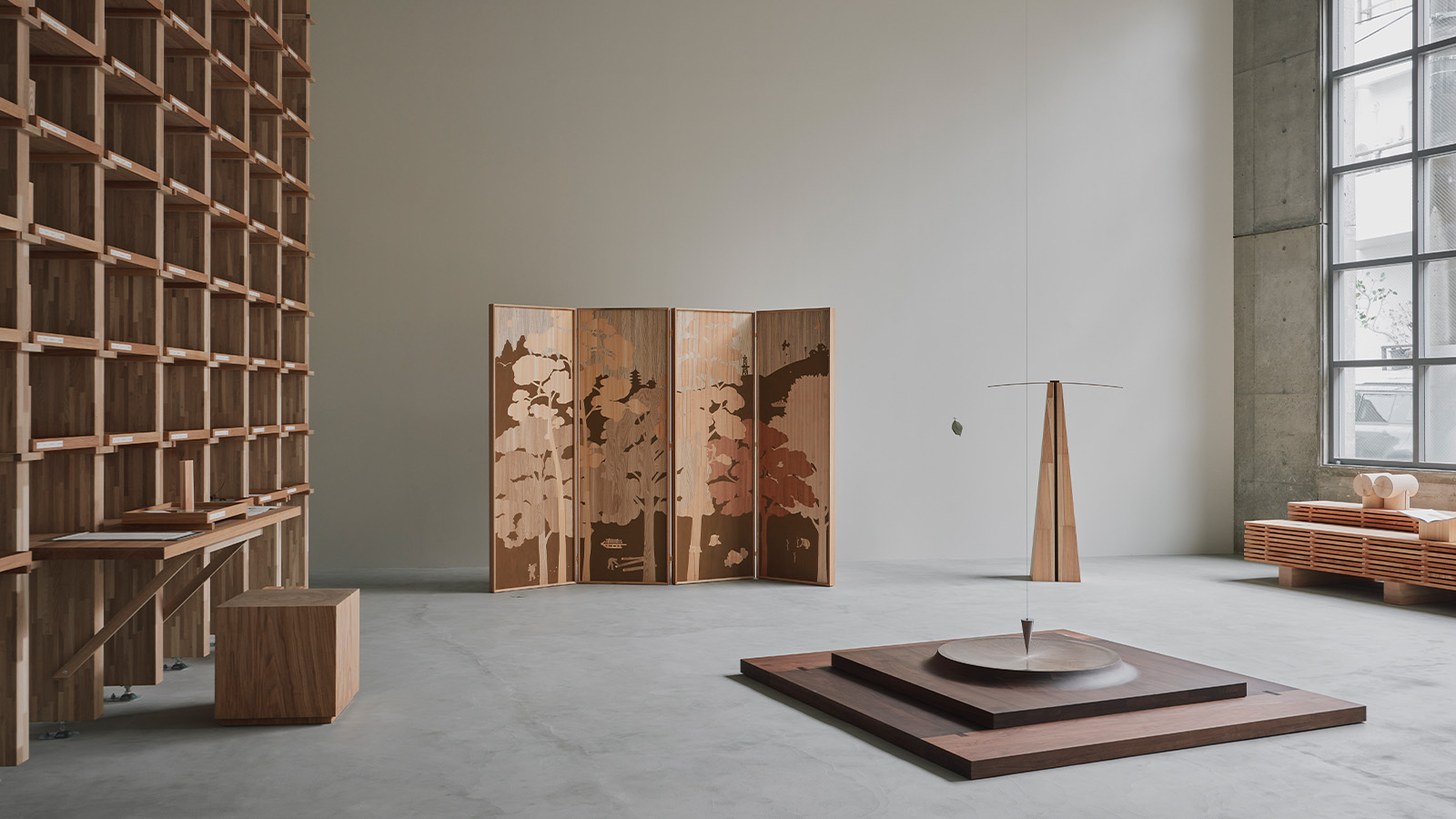
A series of objects and sculptural installations examines wood as both a centuries-old cornerstone of human craftsmanship and an organic vessel containing history and time, beauty and stories.
The study into all things trees is the inaugural exhibition at Karimoku Research Center, an experimental new space recently opened in the Nishiazabu district of Tokyo by the respected wood specialist Karimoku Furniture.
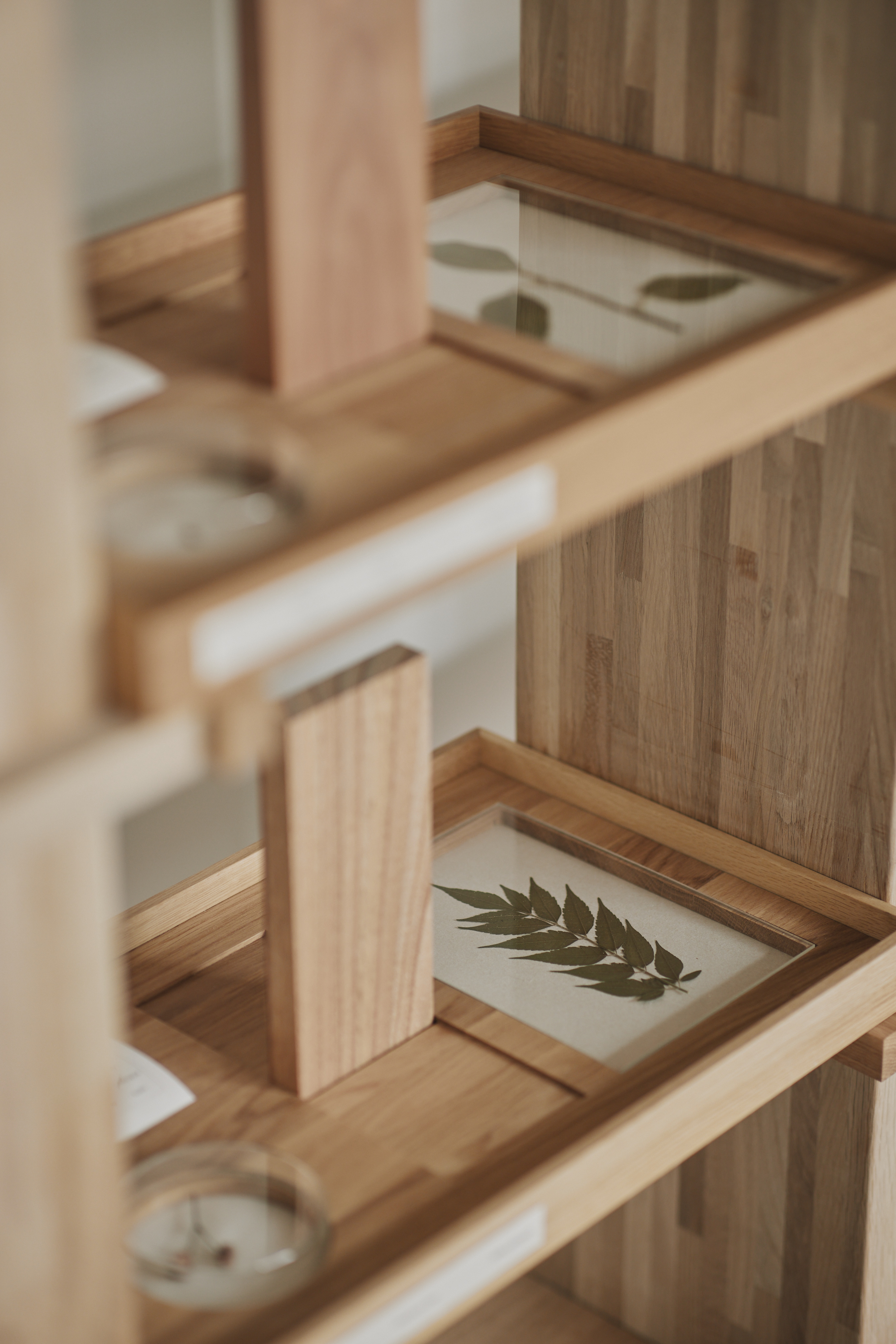
The space is a research platform aiming to survey, archive and innovate how people live in daily life, showcasing elements ranging from experimental design collaborations and pre-production prototypes to new material samples.
A sense of stillness surrounds the opening project, ‘Survey 00: Wood, The Age of Wood’, which is created by the Danish design studio Christian+Jade in collaboration with Karimoku Furniture. It spans The Archive on the ground floor, a cavernous raw concrete space with 5m-high ceilings and natural light pouring through a wall of industrial windows.
‘The Age of Wood’ at Karimoku Research Center
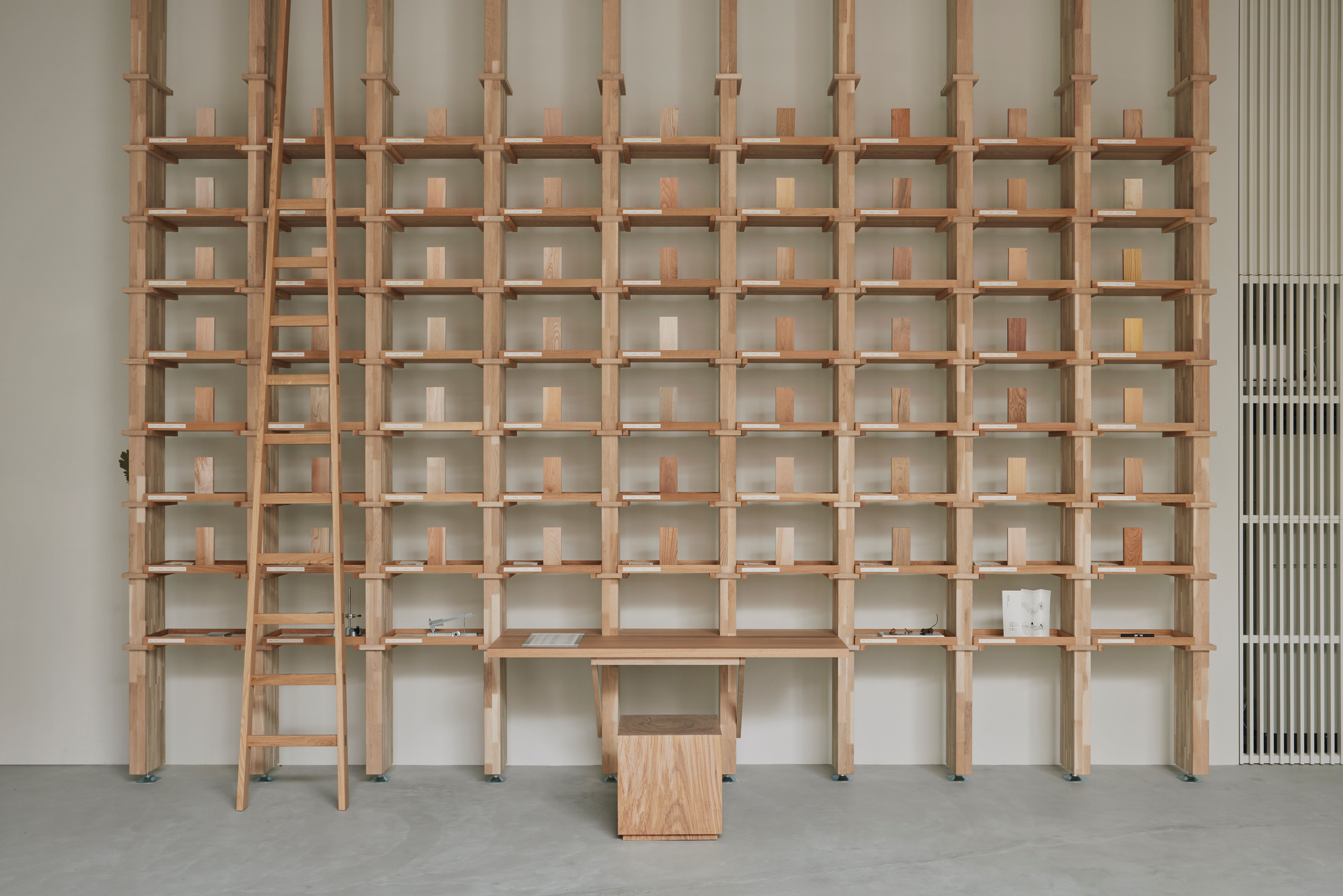
Explaining the seed of the exhibition, Christian+Jade tell Wallpaper*: 'Our journey started last year in the rich forests of Hida in Gifu Prefecture and Karimoku’s production facilities in Aichi. We were invited into a world with knowledge about the history and diversity of Japan’s forest and its trees, high technology and high levels of craftsmanship.
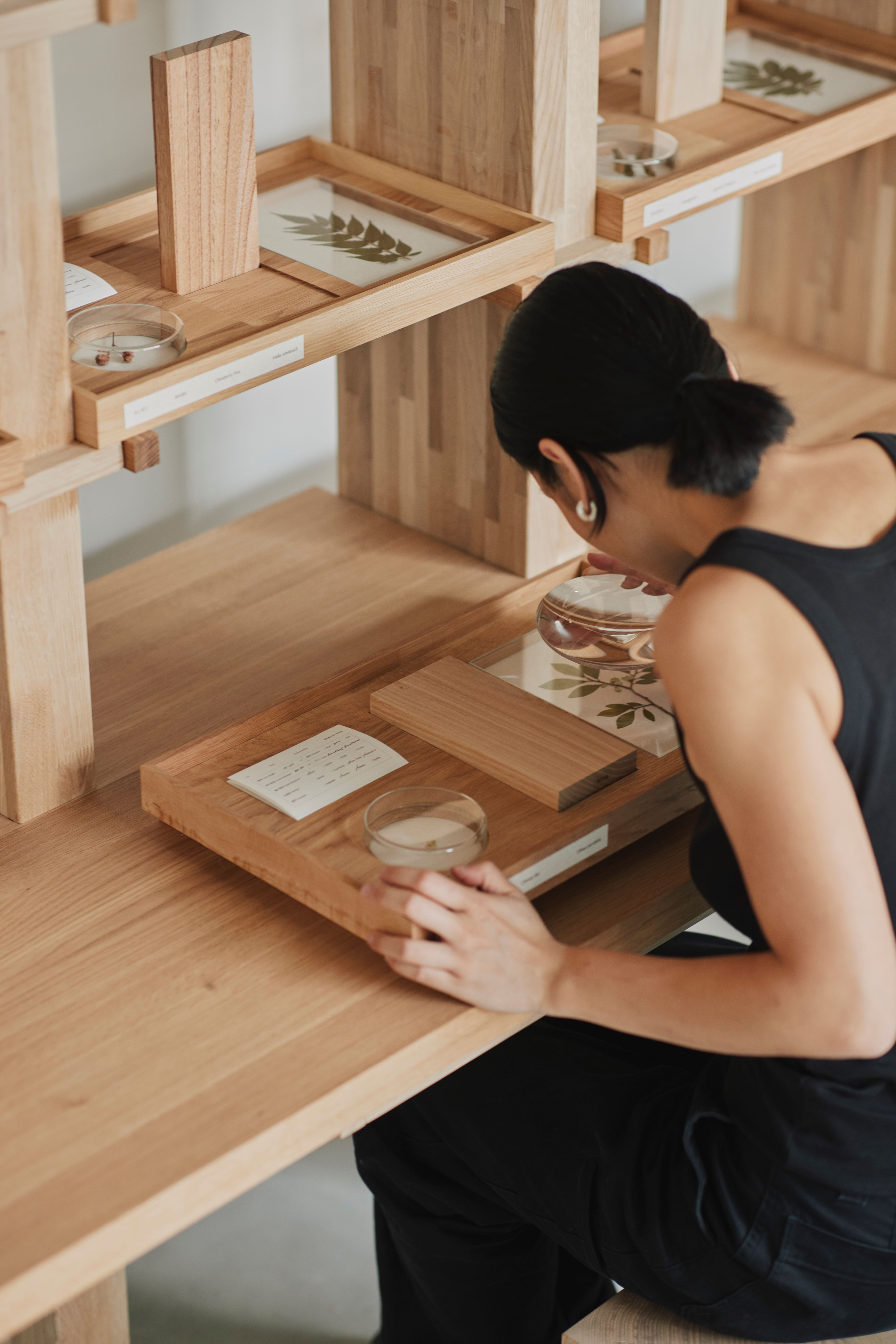
'We got a glimpse into the philosophy and vision that drives Karimoku and were humbled to witness the patience, dedication, care and time given to nurturing not only healthy forest stewardship, but also a factory focused on using under-utilised wood types and species to produce designs that last a lifetime. “The Age of Wood” is an ode to this spirit.'
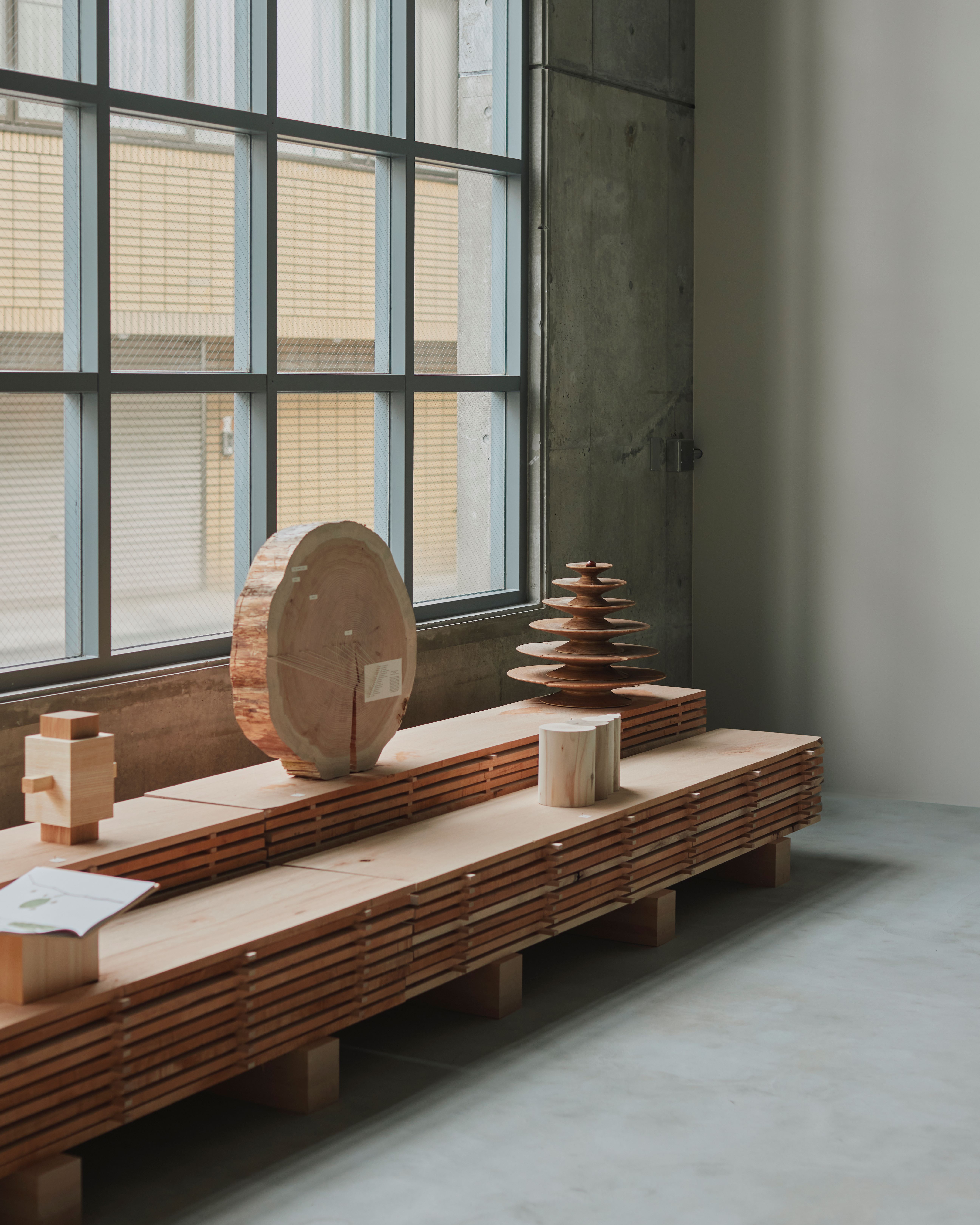
Centre stage is the scene-stealing ‘Library’ – a tall expanse of interlocked wooden shelving, balancing clean contemporary lines with quality wood craftsmanship – which spans an entire wall.
The Library meticulously documents 63 different wood species, collected from across Japan by Karimoku Furniture. Each one is presented with samples, from seeds to leaves, offering insight into its character, quality and origin.
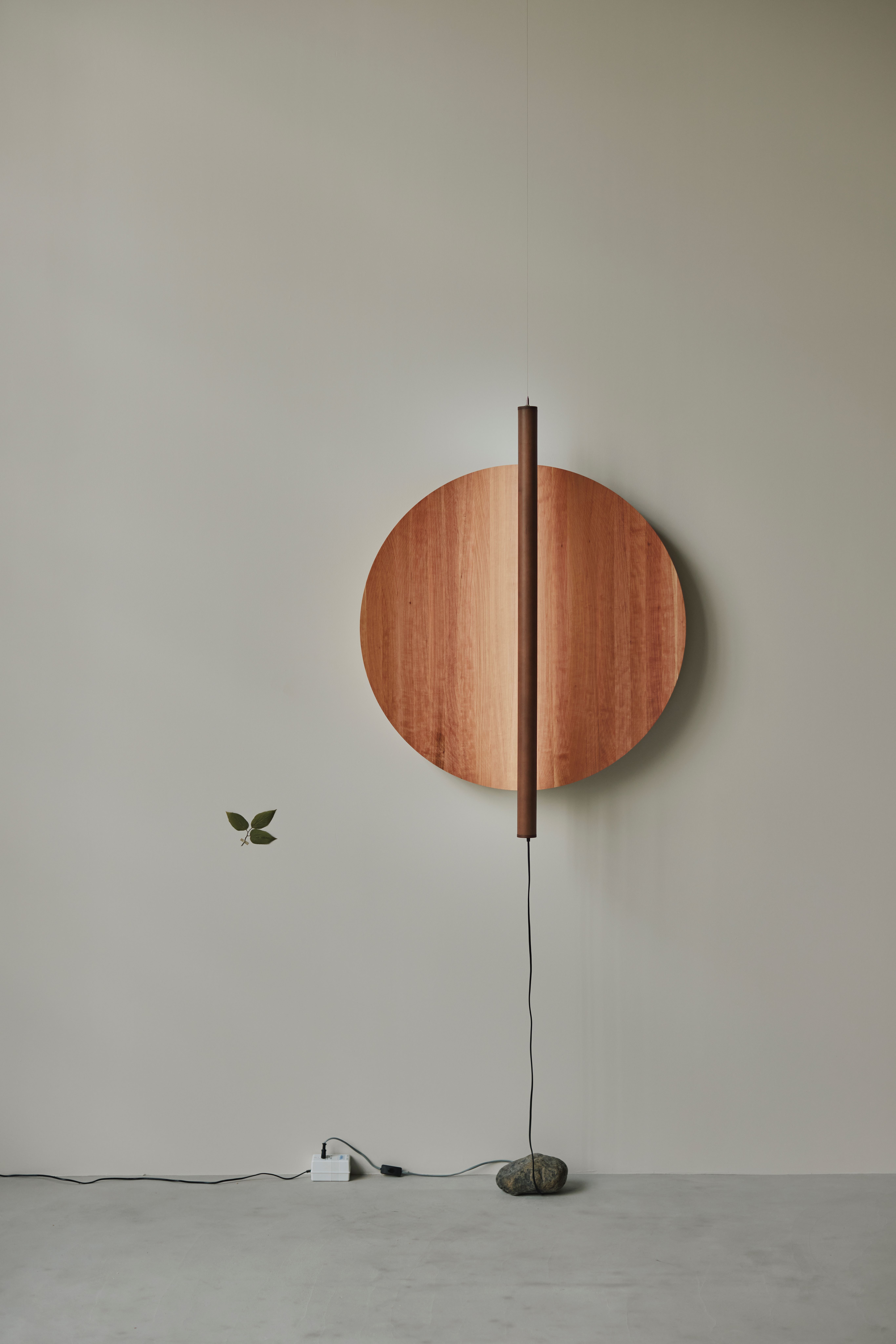
'To us, standing in a forest can feel like standing in a library – brought to [stillness], filled with wonder and captivated by the vast wealth of knowledge and stories waiting to be discovered,' add Christian+Jade.
'The library was born out of a desire to not only showcase the Japanese wood species available at Karimoku’s factory, but also to highlight each of their unique characteristics and properties, to open up the conversation about and hopefully the demand for their potential usage.'
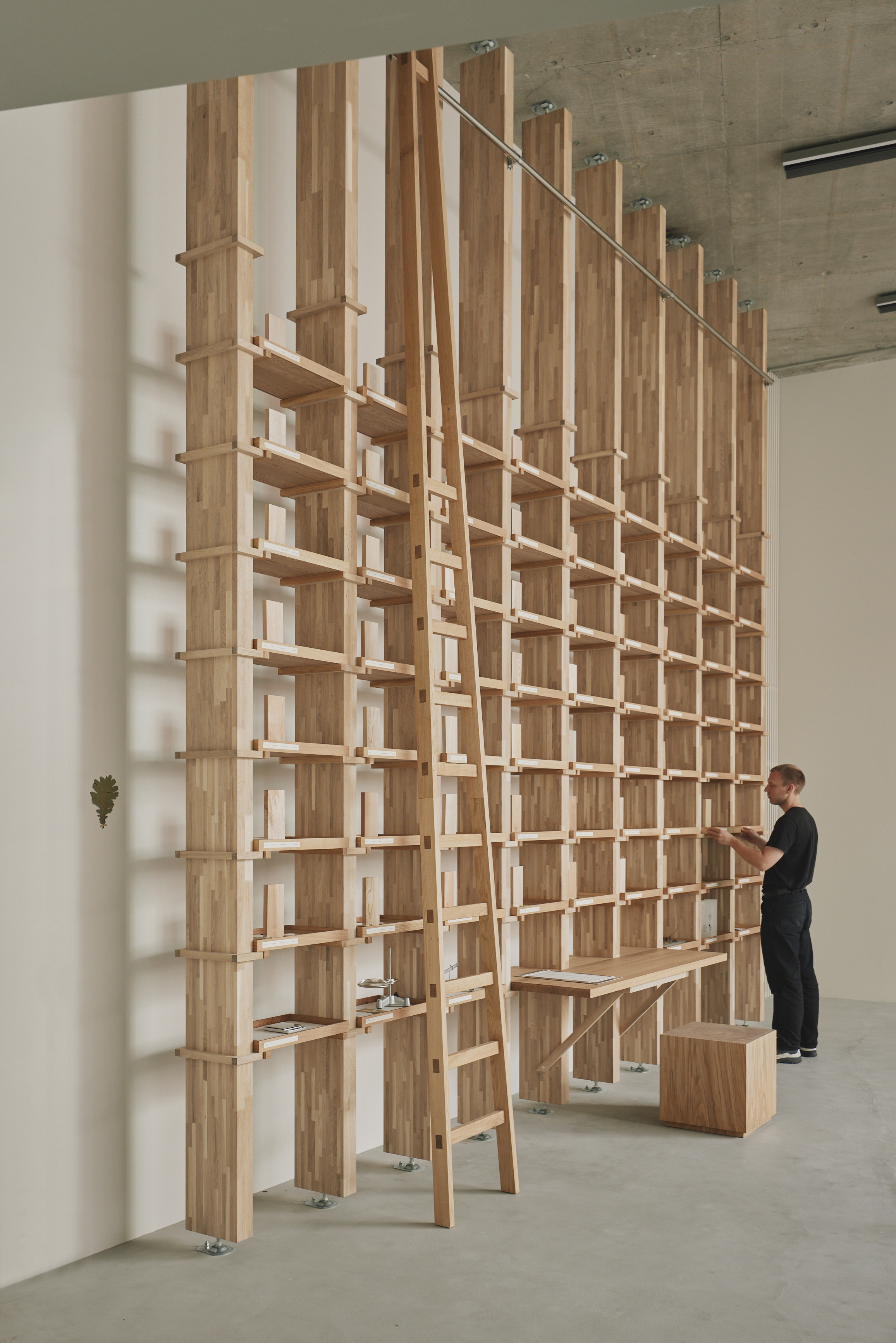
The beauty – and history-loaded qualities – of tree interiors is also highlighted, through the scientific study of tree rings, known as dendrochronology (from the Greek words dendros, meaning tree, and chronos, for time).
One exhibit highlights the internal beauty of a 100-year-old cedar from Ninohe city in Iwate Prefecture, its inner rings painstakingly marked with white threads connected to specific dates in history – from earthquakes, record snowfall and the end of the Second World War to the Covid pandemic.
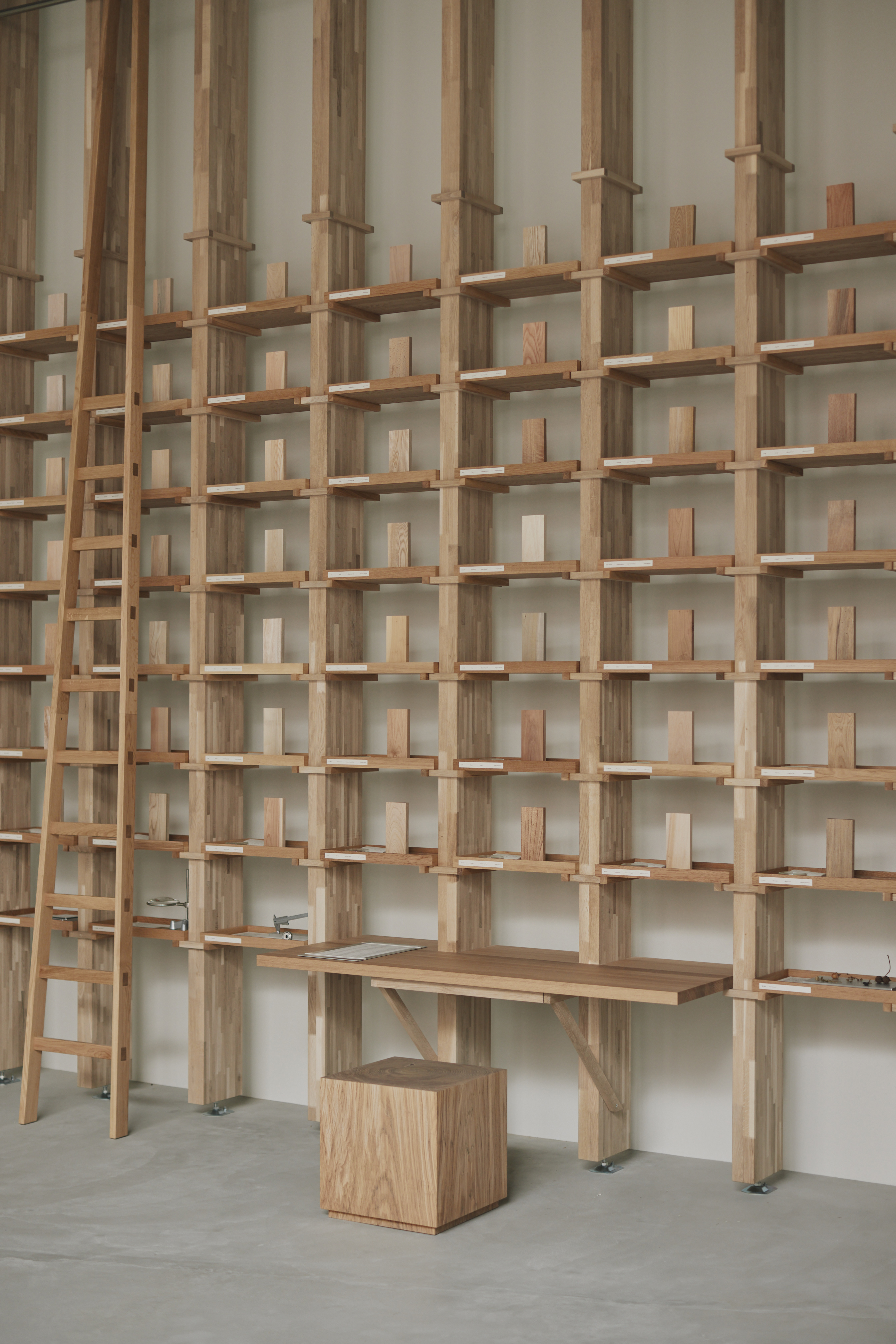
The poetry of passing time and its imprint on wood is a recurring theme – as further reflected in the section Ageing with Wood, a series of sculptures exploring the material’s constant and organic evolution.
This is captured in Touch, a kinetic sculpture with a sharp-edged pendulum gradually etching the surface of walnut wood; as well as Sunlight, which involves cherry wood slowly deepening in tone, from light pink to deep brown, upon 1ure to UV light.
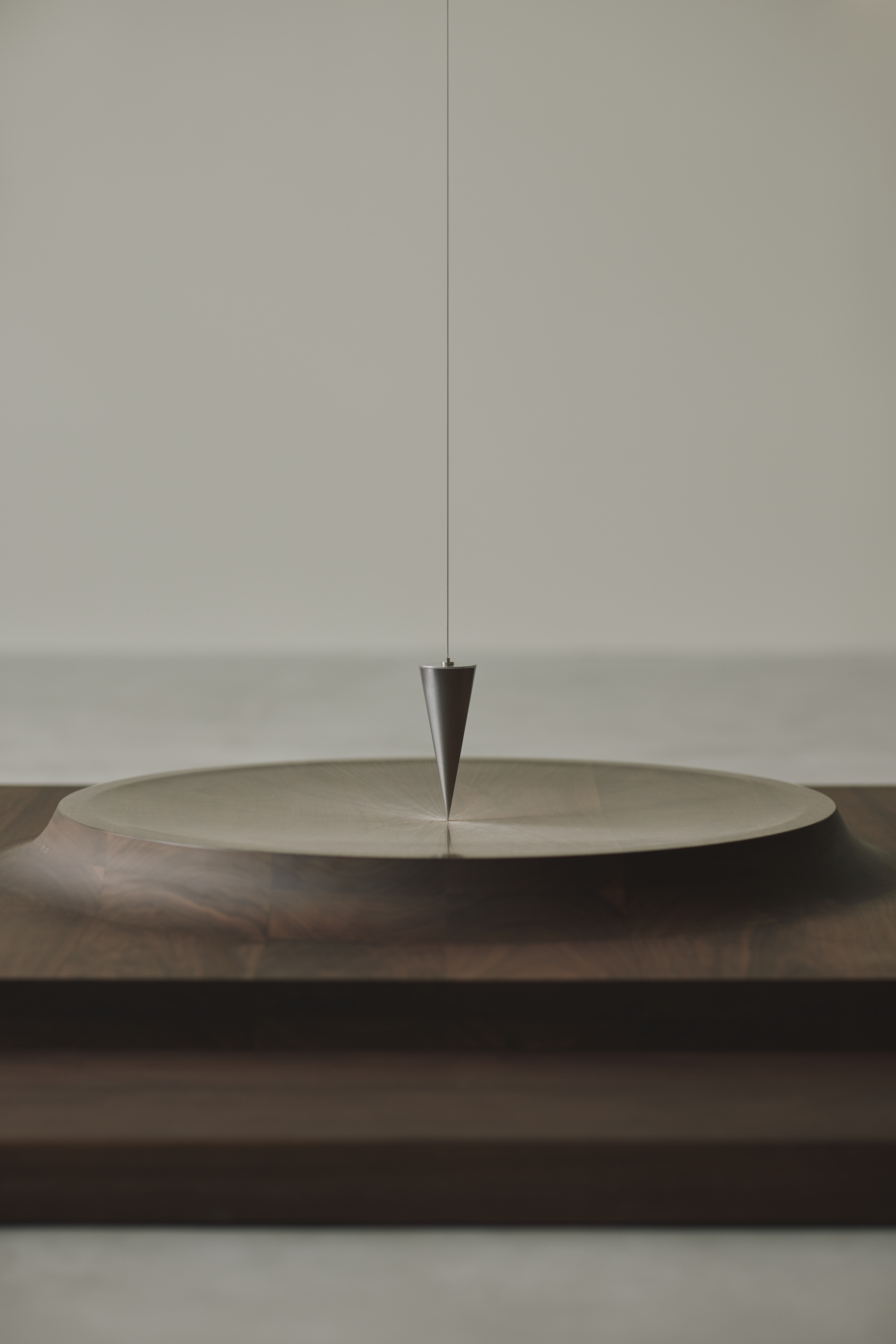
‘“Ageing with Wood” is a reminder that time does not stop, even after a tree falls,' say Christian+Jade. 'In its stillness, wood continues to breathe, shrinking in the cold of winter and expanding in the warmth of the sun. It accumulates scratches and marks, like memories etched into its surface. Time weaves through wood’s grain, through every curve and contour, revealing the hours and years, the lifetime that resides within.'
Karimoku Furniture, a family-founded company with roots dating back to 1940, is renowned for balancing quality human craftsmanship with technical expertise and creative innovation as it moves into the future – as reflected by the opening of its new Tokyo space.
At first glance, Karimoku Research Center, a three-storey building renovated by Keiji Ashizawa Design – also a collaborator on various Karimoku ‘Case Study’ residences, such as the Azabu Residence in Tokyo – appears to inhabit a different universe from the warmth of wood.
Just a few minutes on foot from the softly minimalist interiors of Karimoku Commons Tokyo – its contemporary showroom and gallery space – the new centre spans a 1990s former office with high sharp lines, expanses of raw concrete, flowing natural light and an industrial-edged atmosphere, all harmonised invisibly with a signature aromatic wood scent created by Megumi Fukatsu.
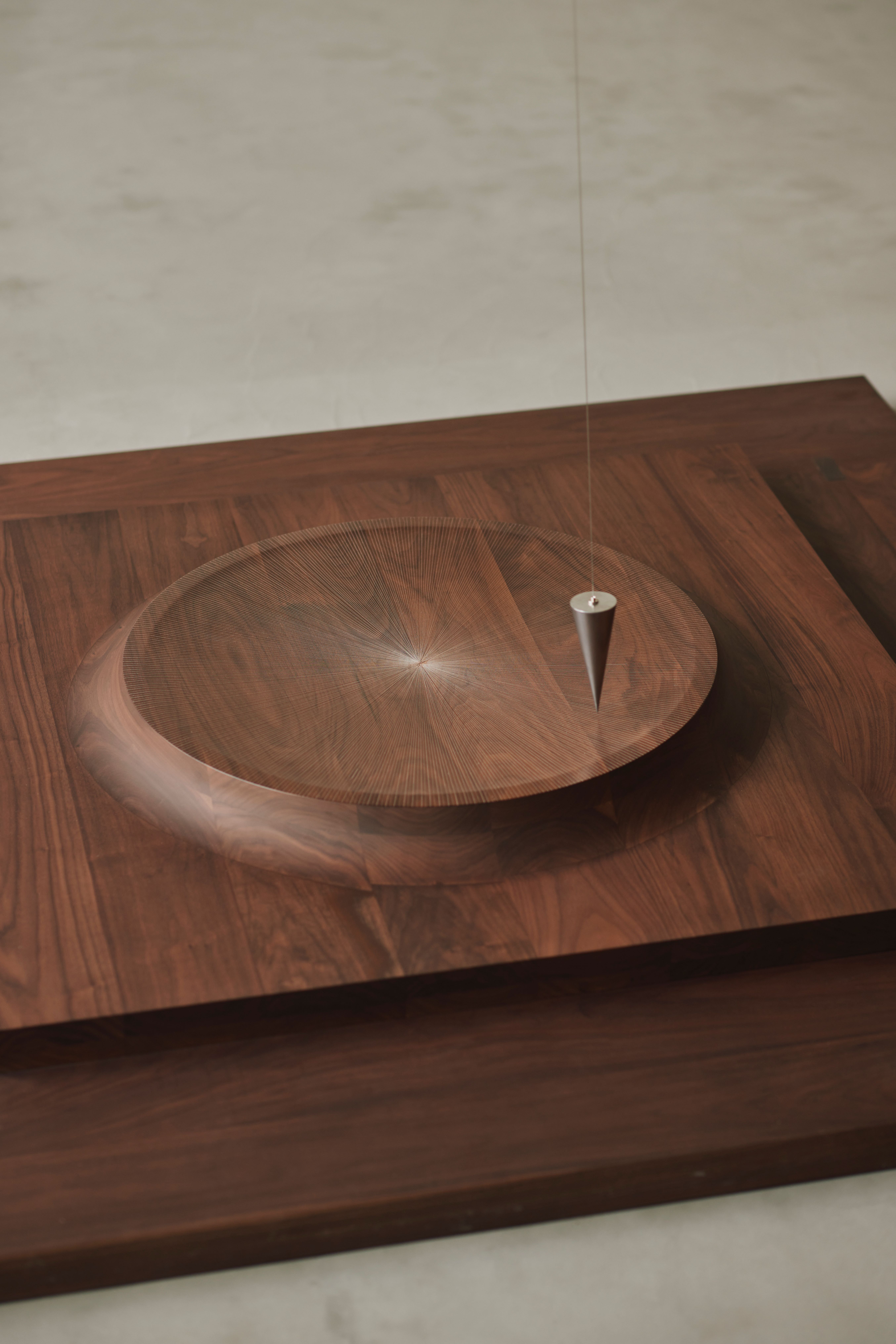
The new interiors perfectly mirror the experimental approach that defines the centre's philosophy, as Hiroshi Kato, vice-president of Karimoku Furniture, tells Wallpaper*: 'The space was designed by Keiji Ashizawa to maximise the building's natural transparency and brightness. The entire space is unified in a grey tone, creating an industrial atmosphere. It is also designed to evolve continually, with materials samples and exhibits added over time, making it a constantly unfinished, ever-changing environment.'
In addition to the The Archive gallery on the ground floor, the geometric lines of an open concrete staircase guide visitors up to The Materials Lab on the first floor, which launched with an exploration of Karimoku’s playfully colourful new ‘Cap’ chair, designed in collaboration with Torafu Architects. Meanwhile, The Study spans a spacious basement, with a multifunctional hall, lounge study and kitchen, designed for events, talks and gatherings.
As Kato explains: 'We hope to create a space where Karimoku Furniture's technologies and materials intersect with the ideas of those who visit, leading to the spontaneous emergence of experimental and innovative projects. Through these activities, we aim to promote the use of the diverse and uniquely sourced woods from various regions of Japan that Karimoku Furniture specialises in.'
Survey 00: WOOD ‘The Age of Wood’ runs until 26 December at Karimoku Research Center







